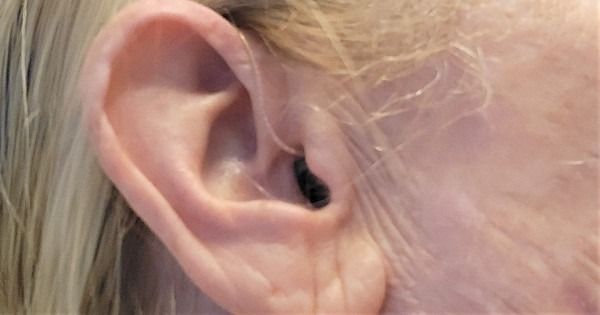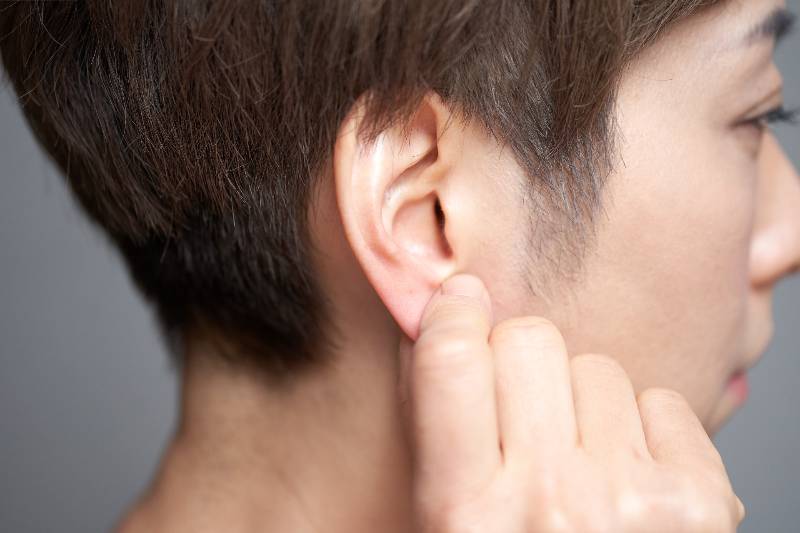The field of tinnitus treatment is rapidly evolving, with new technologies, clinical trials, and personalized approaches emerging as potential game-changers. This blog post delves into the latest advancements and what they mean for individuals suffering from pulsatile tinnitus.
Technological Advances: The Next Frontier in Pulsative Tinnitus Therapy
The landscape of tinnitus treatment is witnessing a significant shift thanks to technological advancements. One of the most promising areas is the development of advanced hearing aid devices equipped with tinnitus masking features. These devices play ambient sounds or white noise to help distract the brain from the tinnitus sounds. Another exciting development is the use of neuromodulation techniques. This involves using non-invasive methods like transcranial magnetic stimulation (TMS) to alter neural activity in the brain regions affected by tinnitus.
Furthermore, smartphone apps dedicated to tinnitus management are becoming increasingly sophisticated. These apps offer personalized sound therapy, meditation guides, and cognitive behavioral therapy (CBT) exercises, all aimed at reducing the perception of tinnitus. The integration of AI in these apps is also a significant step forward, as it allows for more personalized and adaptive treatment plans based on user feedback and progress.
Clinical Trials and New Medications on the Horizon
The realm of clinical trials and pharmacological research is another area where significant progress is being made in tinnitus treatment. Several new medications are currently being tested for their efficacy in reducing tinnitus symptoms. One such area of research focuses on drugs that target the neural pathways involved in the perception of tinnitus. These medications aim to reduce the abnormal neural activity that is thought to be a key factor in tinnitus.
Another promising avenue is the exploration of drugs that can protect or repair the damaged auditory cells and nerves, which are often the underlying cause of tinnitus. Clinical trials are also investigating the use of certain supplements and vitamins that may alleviate tinnitus symptoms by improving inner ear health and overall auditory function.
Predictive Models and Personalized Treatment Approaches
The future of tinnitus treatment is not just about new technologies or medications; it’s also about personalization. Predictive models, powered by machine learning algorithms, are being developed to better understand the individual patterns and triggers of tinnitus in each patient. These models can analyze a wide range of data, including patient history, lifestyle factors, and genetic information, to predict the most effective treatment approach for each individual.
Personalized treatment approaches are also focusing on the combination of various therapies tailored to the patient’s specific needs. This might include a mix of sound therapy, psychological counseling, lifestyle changes, and medication. The goal is to provide a holistic treatment plan that addresses not just the symptoms but also the root causes and individual experiences of tinnitus.
FAQ Section
Q1: What are the latest technological advancements in tinnitus treatment? A1: Recent technological advancements in tinnitus treatment include the development of advanced hearing aids with tinnitus masking features and neuromodulation techniques like transcranial magnetic stimulation. Additionally, smartphone apps offering sound therapy and cognitive exercises are becoming more sophisticated, often incorporating AI for personalized treatment plans.
Q2: Are there any new medications being tested for tinnitus? A2: Yes, there are several new medications under clinical trials for tinnitus treatment. These include drugs targeting neural pathways to reduce abnormal activity associated with tinnitus and medications aimed at protecting or repairing auditory cells. Supplements and vitamins to improve inner ear health are also being explored.
Q3: How do predictive models contribute to tinnitus treatment? A3: Predictive models use machine learning algorithms to analyze patient data and identify individual patterns and triggers of tinnitus. This information helps in developing personalized treatment plans that are more effective for the specific needs and conditions of each patient.
Q4: What does personalized tinnitus treatment involve? A4: Personalized tinnitus treatment involves creating a holistic plan that combines various therapies tailored to the individual’s needs. This can include sound therapy, psychological counseling, lifestyle modifications, and medication, all aimed at addressing both the symptoms and underlying causes of tinnitus.
Practical Tips and Tricks
- Stay Informed: Keep up-to-date with the latest research and advancements in tinnitus treatment.
- Consult Specialists: Seek advice from healthcare professionals who specialize in tinnitus treatment.
- Explore Multiple Therapies: Be open to trying a combination of treatments, including sound therapy, counseling, and medication.
- Prioritize Mental Health: Engage in activities that promote mental well-being, such as meditation or yoga, to help manage tinnitus-related stress.
- Monitor Your Progress: Keep a journal of your tinnitus symptoms and treatment responses to help your healthcare provider tailor your treatment plan.
References
- “Emerging Therapies in Tinnitus Management,” Journal of Clinical Otolaryngology.
- “Advances in the Pharmacological Treatment of Tinnitus,” Tinnitus Research Initiative.
This blog post is designed to be informative and engaging, providing readers with the latest information on tinnitus treatment advancements while adhering to SEO best practices.
Covid’s Silent Side Effect: The Hidden Connection between Hearing Loss and the Pandemic
Tinnitus affliction: Find answers to your top questions
References
American Tinnitus Association – Pulsatile Tinnitus





